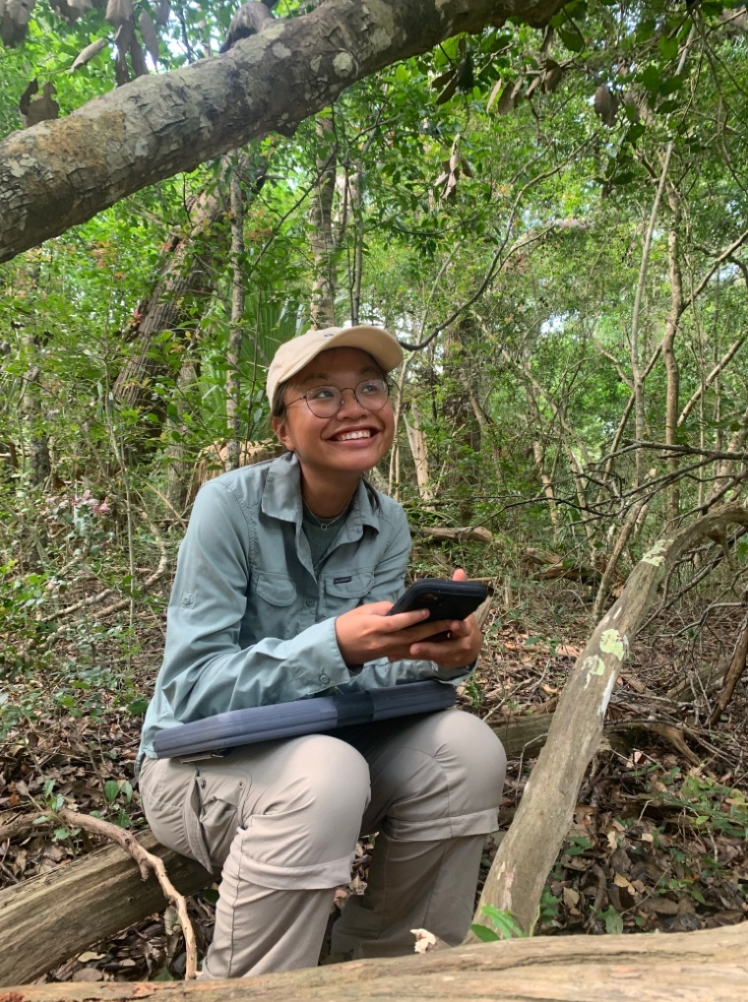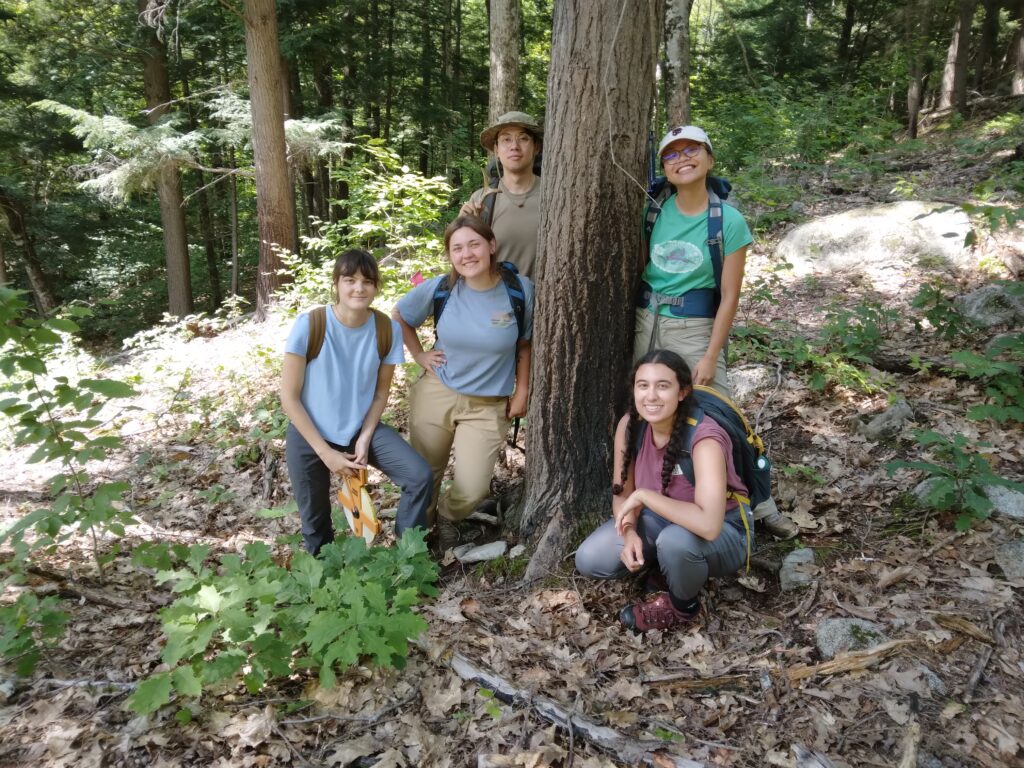The Jones Center at Ichauway Landscape Ecology lab is proud to welcome Khanh Ton! Ton recently joined the lab as a Geospatial Analyst after completing her MS in Natural Resources in the Environment at the University of New Hampshire.
Ton’s MS work addressed strategies for enhancing red oak regeneration in forests of the White Mountains in New Hampshire, and also completed a graduate certificate in Geospatial science. Her experience will complement the lab’s recent efforts in advancing technological applications in conservation, where she will lead projects related to rapid assessments of longleaf pine habitat quality through detailed structural assessments using drones, lidar, and satellite imagery.
I asked Khanh to share more about herself and the work she is doing.

What got you interested in conservation of longleaf pine or ecology in general?
When I started college, I knew I was interested in environmental sciences but not quite sure what about it exactly. My advisor got me to take GIS during my freshman year, and I felt really drawn to it, and a forestry research fellowship in the summer of my sophomore year completed the picture. Since then, my works have been driven by questions at the intersection of forest ecology and remote sensing.
How long have you been working in ecology? What is your background with ecological research? Or anything you want to share about your background in general?
I started out doing animal behaviors and movement research during my freshman year and have experience working with water and soils as well, but I have increasingly honed in on forest ecology since that abovementioned fellowship in summer 2021. I have had the privilege of living and working in a handful of beautiful landscapes along the East Coast, including Bald Head Island in North Carolina, Cape Cod, and, most recently, the White Mountains National Forest. I have primarily studied forest regeneration following disturbance events (or a lack thereof), with oak as a species family focus.
What was the focus of your Master’s research at UNH? What is one of the most important or impactful findings from those studies?
I examined whether prescribed burns could be an effective silvicultural management tool for Northern red oak regeneration in its climate change-induced northward expansion. We surveyed six pairs of burned-control stands across the White Mountains in northern NH and found that, in burned stands, oak seedlings are more abundant, and they grow bigger and faster. We pointed out that increasing light availability is a major mechanism at play in the post-fire environment.

What do you look most forward to accomplishing and learning with your team at the Jones Center?
I am excited to further develop geospatial analysis and modelling skills, especially in R! I consider myself relatively well-versed in ArcGIS Pro and QGIS, and had heavily used R for statistical analyses, but had never visualized a map prior to working at the Jones Center. With the team, I hope to create remote sensing workflows that can be highly applicable to the management and conservation of longleaf pine systems.
You just successfully completed your MS defense and are finalizing a research pulbication. Congratulations! What advice do you have for current graduate students and for those considering a career in ecology, conservation, or academics?
When I was in school, it was easier for me to find out what I did not enjoy doing than to pinpoint what I am passionate about from the start. I believe embarking on this elimination process is beneficial in ultimately discovering your “calling” or research niche. Even if you end up dreading your internship, it is so much easier to finish up a 3-month stint than to learn it the hard way at your first full time job. Engaging in different experiences also enables you to meet more people in your field, learn about their work (which is something I personally love and am constantly humbled and in awe of), and live in different places!
What is one text that you think of as a “must read” including scientific papers, textbooks, or recreational reaading?
I recommend The Invention of Nature: Alexander von Humboldt’s New World by Andrea Wulf! I don’t read a lot of biographies, but Humboldt is a rather important figure in our field and the author did a phenomenal job of narrating his life in a way that appeals to a general audience. His daring expeditions inspire my fieldwork and big questions I get to ask about the ecosystems that I work in, and his influence during and after his lifespan showcases the importance and everlasting impacts of our work. I also love that this book portrays his “human side,” which is usually lacking in books depicting scientists, because we need to be reminded that we are more than just our works and leading a fulfilling life can help us retain productivity and joy at work.